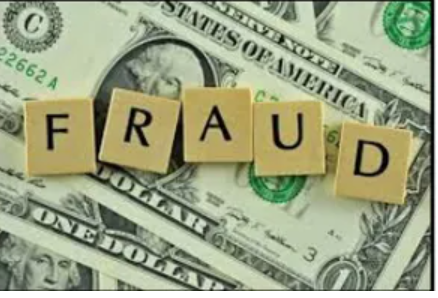Pa. Man Sentenced for $2 Million COVID-19 Pandemic Fraud Scheme; COVID Fraud Case: West Palm Woman Paid Rent, Electric and Food Bills From Bogus Pay Stubs, and other C-Virus related stories
Pa. man sentenced for $2 million COVID-19 pandemic fraud scheme:
A Pennsylvania man will spend 12 years in prison after defrauding the government of $2.1 million in pandemic relief funds.
Christopher J. Miller, 36, of Newfoundland, spent the money on cars, vacations, and real estate in a “devious” scheme to defraud the government, officials said. Miller was recently convicted of bank fraud, aggravated identity theft, and unlawful monetary transactions for approximately 50 fraudulent applications and sentenced this week.
Miller illegally secured funding through the Payment Protection Program (PPP), for Economic Injury and Disaster Loans (EIDLs), and for Pandemic Unemployment Assistance (PUA) benefits, according to U.S. Attorney Gerard M. Karam.
Some of the applications submitted by Miller were filed on behalf of corporate entities under his control that did not, in fact, have actual business operations, a news release reported. The business operations bore false addresses, false IRS-issued Employee Identification Numbers, false dates of business establishment and operation, false employee headcount information, and fabricated gross income, gross receipts, and payroll obligation information.
The applications also included forged IRS income tax returns, and federal employment tax documents, the U.S. attorney said. Miller also failed to disclose in the applications that he was previously convicted of a felony.
Miller also filed fraudulent applications on behalf of himself and numerous family members, friends and associates, the news release said. In exchange, he received cash kickbacks from those individuals. —>READ MORE HERE
COVID fraud case: West Palm woman paid rent, electric and food bills from bogus pay stubs:
Four years after Palm Beach County began providing financial help for rent, utilities and food to eligible residents impacted by the COVID-19 pandemic, the Office of the Inspector General is still investigating fraudulent claims for that assistance.
“It takes a while to identify them,” said Stuart Robinson, the OIG’s director of investigations. “Sometimes it takes a while to do things like getting bank records.” And some people get caught applying later for other rental help when information they provide conflicts with that on the COVID-related application, he added.
Palm Beach County received about $261 million in federal CARES Act money in 2020 to provide relief to eligible individuals, businesses and governments affected by the pandemic. The county designated $40 million for emergency mortgage, rental and utility assistance.
The OIG has investigated 15 cases in which it says people received the money using false information.
In the latest, a West Palm Beach woman allegedly received $11,202 in 2020 and 2021 for help paying her rent, a past due electric bill and food after submitting fraudulent stubs and a bogus memo from her employer. The OIG referred its report to law enforcement agencies and the county will seek reimbursement.
She is unlikely to be prosecuted. The state attorney’s office has charged only one person on a CARES Act referral, said spokesman Marc Freeman. That 2023 case ended in April with a plea bargain in which the defendant got five years probation and agreed to pay $21,553 restitution in monthly installments of at least $360.
Procedurally, a law enforcement agency takes a CARES Act case to the state attorney’s office, which then reviews the strength of the evidence.
Two of the woman’s applications for aid were approved and a third was denied, according to the OIG. She said that she was a private contractor therapist for Turning Point Mental Health Center in Plantation and had lost hours and clients because of the pandemic.
To document this, she submitted an emailed memo from a Turning Point manager to its staff and a second memo from founder and CEO Michelle Montero-Caicedo, regarding the indefinite closure of the office and the need to work remotely. The applicant also provided seven pay stubs with dates that didn’t coincide with when her work purportedly was done.
Montero-Caicedo told the OIG that neither memo was authentic and that the one purportedly sent by her included a cell phone number that was not hers. It actually was that of the applicant, the OIG said. —>READ MORE HERE
Follow links below to relevant/related stories and resources:
Why Many Regret Moving to Europe Post-Pandemic
The World Is The Happiest It Has Been Since COVID-19
USA TODAY: Coronavirus Updates
YAHOO NEWS: Coronavirus Live Updates
NEW YORK POST: Coronavirus The Latest








Comments are closed.